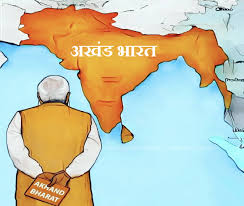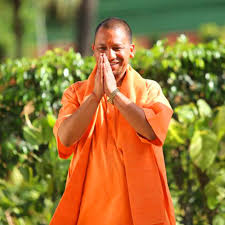
18-Sep-2024 , Updated on 9/19/2024 10:30:52 PM
When will India be a Country based on Hinduism Religion?
India is a diverse country and has always been so. It has freedom of religion written in its Constitution. However, the increase of Hindu nationalism in the past few years, which includes such ideas as
Akhand Bharat and politicians as Yogi Adityanath, has led to the consideration of what may still be a future for India. In our context, could India dream of turning into a Hindu only state and leaving behind secularism?
This is what the
Uttar Pradesh Chief Minister Yogi Adityanath said: “If we associate Hindu with religion, faith, and sect, then we are making a mistake in understanding Hindu. Every Indian must have the highest regard for the Constitution, which is our guide.” He could not be more right: a discussion on whether India will one day become a nation based solely on Hinduism or any other religion, for that matter, is possible only if As a result, there is an important need to acknowledge that India has secularism as one of its core guiding principles; thus, any move towards creating the Hindu Rashtra would require changes in the Constitution. Also, owing to the rich religious and cultural diversification of India, the possibility of such a change is not easy to imagine, and even if it takes place, it is hardly likely to occur without any resistance or struggle.
The debate of whether India would turn into a Hindu nation majorly stems from the political philosophy known as Hindutva fronted by organisations such as the
Rashtriya Swayamsevak Sangh RSS and political parties of the BJP. It turns out that the ideology of the ruling nation in India is rooted in the conversion of Hindutva, which insists on the supremacy of Hinduism in the country. But India, being a democratic country, has created its own Constitution wherein the principle of secularism has been followed, and hence no discrimination is done on the basis of religion, and all are equal under the Indian Constitution. They have tried to cover the debate on the place of religion in India, which is a perfect example of tradition versus modernity or unity in diversities of the country.
Looking back, Adityanath's comments reflect the demands of a segment of the Indian Hindu community to restore Hinduism's dominance in the country's politics, society, and culture. He embodies a raw form of Hindu nationalism that seeks to bring back or create a return of what he and his supporters believe to be the true India of the Hindu. For Adityanath and his followers, Hindu Rashtra is not only a question of how people identify themselves in terms of religious affiliation but about the principles of political administration of the nation based on the Hindu Shastras. They call for the reestablishment of
Dharma, which is the Hindu ethical and spiritual form of properly as a political as well as social blueprint to rejuvenate the Indian spirit. This vision involves the following: settlement of Hindu values in education, law, and policy with the view of resetting the society with Indians of these values. This strategy has caused a lot of criticism and opposition on the part of those who think that it can lead to the isolation and exclusion of religious minorities and the negation of India’s secular nature.
In the past, India was home to only Hindus. Then, other religions spread throughout the country, such as Islam, which emerged along with many others, and British rule imposed its own cultures and beliefs. Despite this, India was quite tolerant of all religions and established its constitution as a secular India. However, do you honestly believe that we, the Hindus, are paying tribute to the thousands of freedom fighters who gave their lives and literally battled to the death to ensure that other religions would eventually take over India? Although the necessary actions will take time, this is the moment to honour the sacrifices made by those who gave their lives in defence of Sanatan Dharma.
But the debate around Akhand Bharat and Hindu nationalism isn’t going to disappear anytime soon. It is still very active in Indian politics and remains to influence policies at the state and federal level and discussions prevalently.

Student
hey there! i am a student currently pursuing my bachelors with a keen interest in writing., I am fueled by a deep love for storytelling and a flair for creating captivating narratives. Armed with a passion for language and a keen eye for detail, I strive to craft compelling copy that leaves a lasting impact.
Join Our Newsletter
Subscribe to our newsletter to receive emails about new views posts, releases and updates.
Copyright 2010 - 2026 MindStick Software Pvt. Ltd. All Rights Reserved Privacy Policy | Terms & Conditions | Cookie Policy